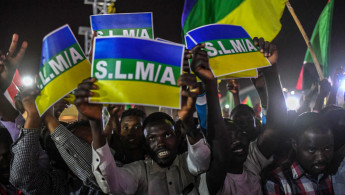Sudan drops eight Darfur rebel death sentences to 'build confidence'
Sudan said on Thursday it had cancelled death sentences against eight rebels from Darfur, a move aimed at "building confidence" with armed groups as the country's new government attempts to bring peace to the war-torn region.
Among the chief aims outlined in a landmark power-sharing deal signed last month is bringing an end to conflict in Sudan and signing a lasting peace deal with rebel groups within the next six months.
The country's ruling sovereign council said it had also ordered the release of several other rebels who had previously fought government forces in Darfur.
The eight whose death sentences were cancelled are from the Sudan Liberation Army - Abdul Wahid group, sovereign council member Mohamed al-Faki said in a statement.
It was unclear when they had been sentenced and on what charges.
The council also ordered the release of 18 imprisoned Darfur rebels, Faki said.
The decisions aim to "build confidence with the armed groups" and were part of a deal reached in South Sudan last week, he said.
Armed groups from the Darfur, South Kordofan and Blue Nile conflict zones held talks in Juba that ended in the signing of a deal on "pre-negotiation principles" with Khartoum.
For years, Sudan had witnessed deadly conflicts in three regions between oustead President Omar al-Bashir's forces and ethnic minority rebel groups, with tens of thousands of people killed.
Rebels in Blue Nile and South Kordofan fought alongside the south for independence, but were left north of the border in 2011 and have continued their own insurgency against Khartoum.
Rebels in Darfur also waged a long war since 2003 over marginalisation in the western region.
The ruling sovereign council has also said it will work to end the regions' marginalisation.
Read more: The Sudan Uprising and the critical role of social media





 Follow the Middle East's top stories in English at The New Arab on Google News
Follow the Middle East's top stories in English at The New Arab on Google News


